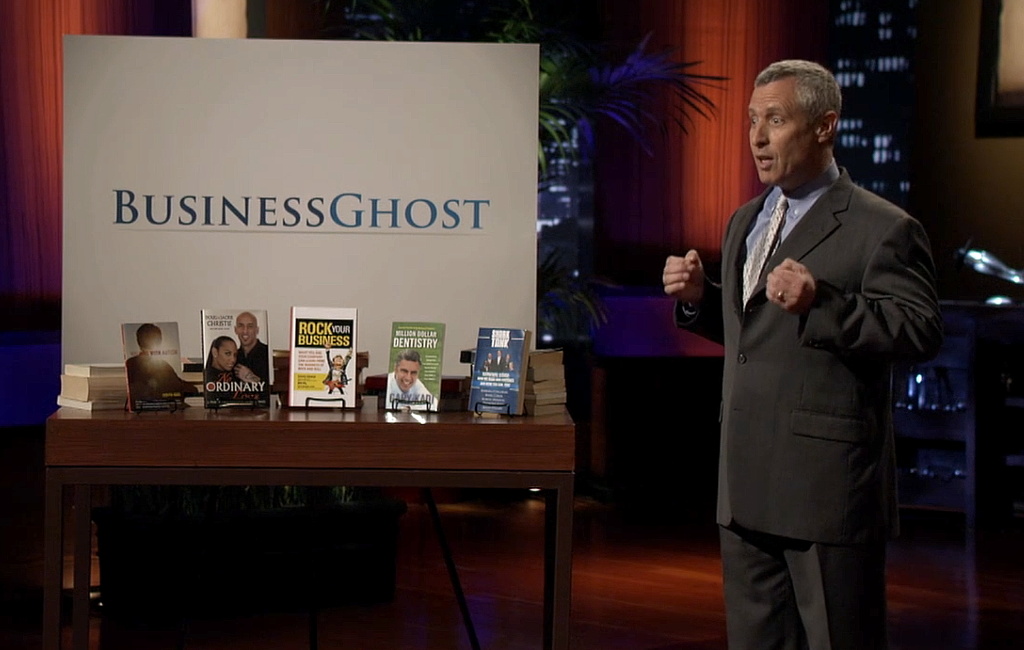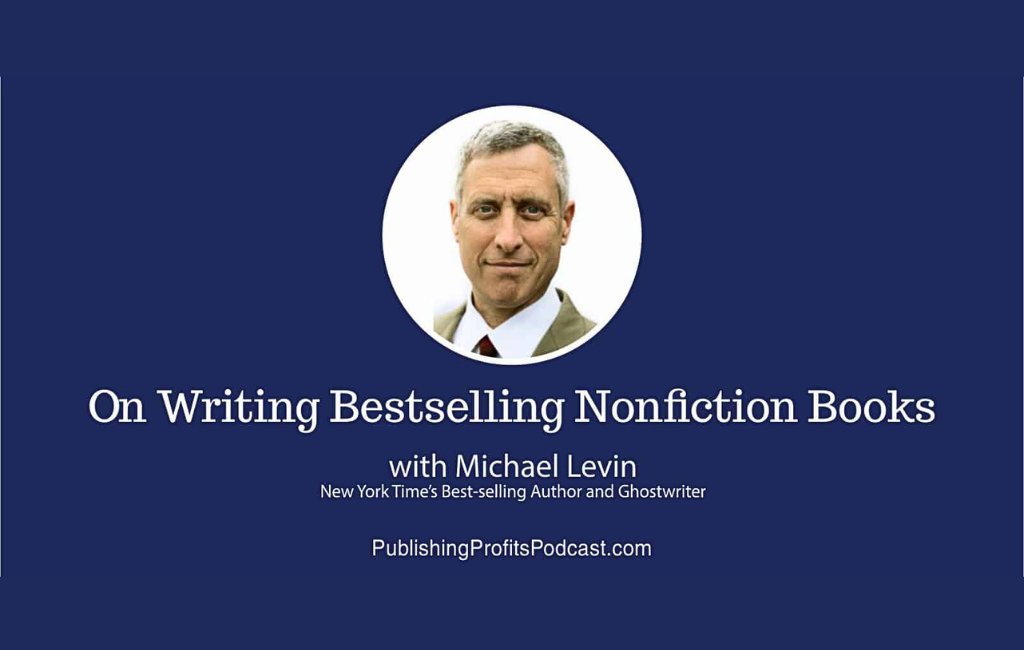BusinessGhost Ghost-writing Services

NO DEAL
EPISODE SUMMARY
🕓 Air Date: January 20, 2012
Asking For:
$200,000 for 10%
Investor:
No Deal
Deal:
No Deal
PRODUCT SUMMARY
BusinessGhost offers ghostwriting services to help individuals, particularly businesspeople, entrepreneurs, and celebrities, become published authors and enhance their brand through books.
WATCH HERE
IN A RUSH?
Click these to jump to the section you want to read.
Background Story
Michael Levin, the founder of BusinessGhost, is a prolific writer with over 100 books to his name, some of which have been adapted into TV shows and movies and have appeared on “The New York Times” bestseller list. Despite his extensive literary accomplishments, he remains relatively unknown as he primarily works as a ghostwriter, helping clients from diverse backgrounds tell their stories.

Leveraging his experience and recognizing the widespread desire for individuals to become published authors, especially among business professionals and celebrities, Levin founded BusinessGhost. Based in the United States, BusinessGhost aims to democratize the process of publishing by offering comprehensive ghostwriting services, from organizing and writing to designing, publishing, and marketing books, providing clients with a one-stop solution to realize their publishing dreams.
The Product
BusinessGhost operates on a straightforward model. Clients approach the company with their story ideas or concepts, and BusinessGhost’s team of eight writers, overseen by a Chief Creative Officer, conducts interviews and collaborates with the clients to craft their narratives. The company offers a comprehensive package that includes writing, designing, publishing, and marketing the book, providing clients with professionally produced hardcover copies of their work.
Prices for BusinessGhost’s services range between $35,000 and $75,000, depending on the scope and complexity of the project, with the cost covering the entire process from conception to the printing of physical copies of the book, typically 50 to 100 copies. While BusinessGhost primarily caters to businesspeople, entrepreneurs, sports figures, broadcasters, and celebrities, it aims to expand its market by tapping into the broader audience interested in storytelling.
While BusinessGhost currently relies heavily on referrals for customer acquisition, it has achieved notable success, with an average of two books completed per month and projected gross revenues of $650,000 to $700,000 for the year. Clients recognize the value of investing in a professionally written and published book to differentiate themselves and elevate their status in their respective fields.

How It Went
The company’s position before Shark Tank
BusinessGhost demonstrates financial viability, with projected gross revenues of $650,000 to $700,000 for the year, indicating steady growth and demand for its services. The company primarily relies on referrals for customer acquisition, leveraging its reputation and the success stories of its clients to attract new business. While BusinessGhost’s current client base consists mainly of business professionals, entrepreneurs, sports figures, broadcasters, and celebrities, it seeks to broaden its market reach by appealing to a wider audience interested in storytelling.
The company’s structure includes a team of eight writers, overseen by a Chief Creative Officer, with Michael Levin responsible for business development and client acquisition. BusinessGhost has yet to secure external funding and operates as a self-funded entity. Despite its profitability, BusinessGhost faces skepticism from potential investors regarding its scalability and long-term growth prospects. Some investors view the company’s business model as akin to vanity publishing, raising concerns about its ability to achieve substantial revenue targets and generate returns on investment.

While BusinessGhost has achieved profitability, investors question its potential to scale the business and reach a broader market beyond its niche clientele. The company’s current structure relies heavily on Levin’s involvement, prompting concerns about its ability to thrive under new leadership and implement effective growth strategies. BusinessGhost’s performance reflects its success in fulfilling the publishing aspirations of its clients, but it faces challenges in convincing investors of its scalability and long-term viability in a competitive market landscape.
The Negotiations:
Despite presenting a compelling pitch and demonstrating the profitability of his business, Michael Levin faced challenges convincing the Sharks of BusinessGhost’s scalability and long-term viability. Each Shark expressed skepticism regarding the company’s ability to achieve significant growth and generate substantial returns on investment. Daymond John questioned the scalability of BusinessGhost’s business model, expressing doubts about its potential to evolve into a multi-million-dollar enterprise.

Other Sharks echoed similar concerns, citing the niche nature of the company’s clientele and the limitations of its current approach to customer acquisition. While Levin emphasized the strategic value of BusinessGhost’s services as marketing tools for clients to enhance their personal brand and business ventures, Sharks remained unconvinced of its scalability beyond its existing market segment.
Despite Levin’s openness to external leadership and investment to drive the company’s growth, Sharks ultimately passed on the opportunity to invest in BusinessGhost. Mark Cuban acknowledged Levin’s hustle and passion but expressed reservations about the future prospects of the publishing industry and BusinessGhost’s ability to adapt to evolving market trends. Ultimately, Levin left the Tank without a deal, disappointed but determined to continue pursuing his passion for storytelling and helping clients realize their publishing dreams through BusinessGhost.






